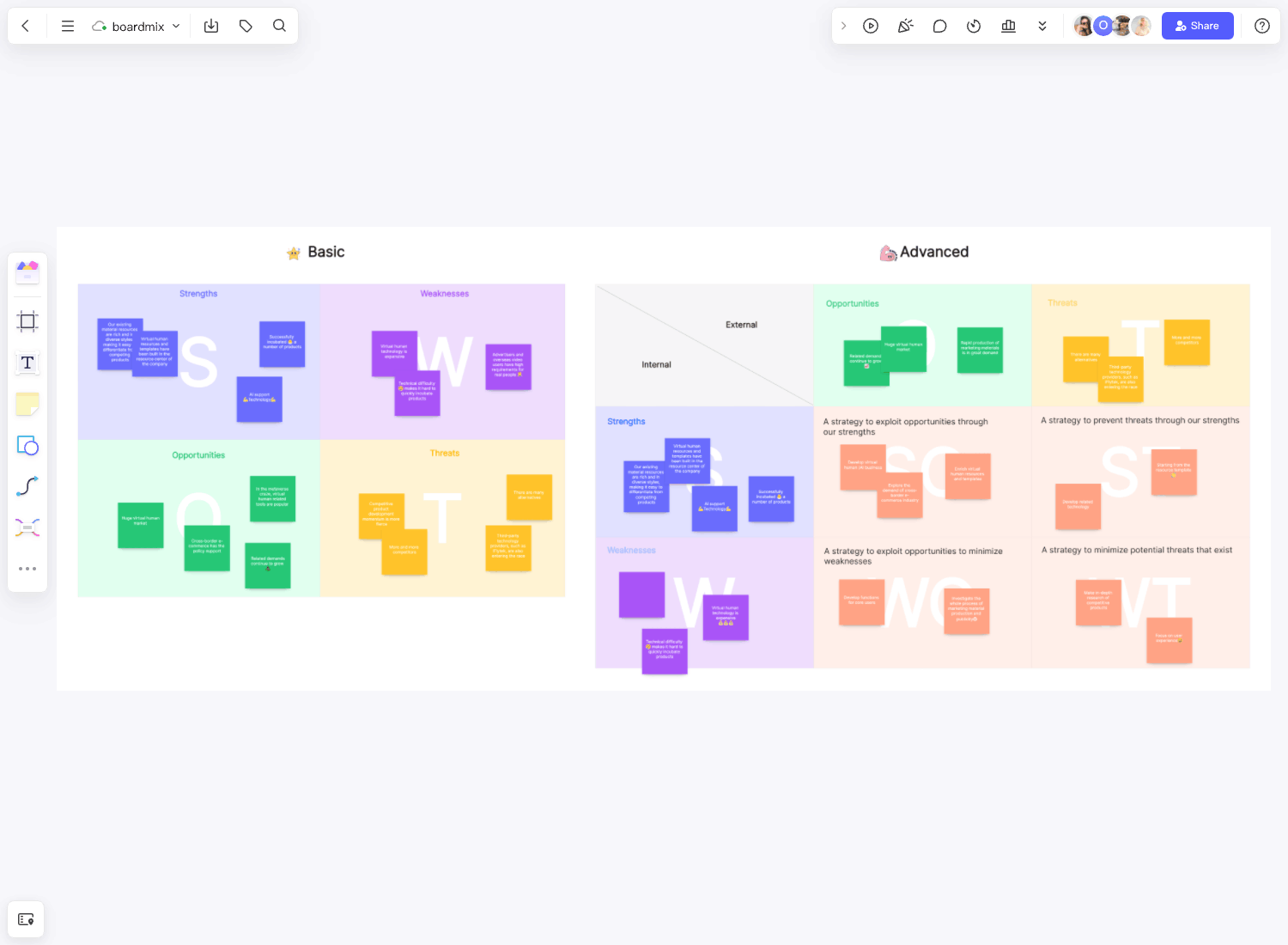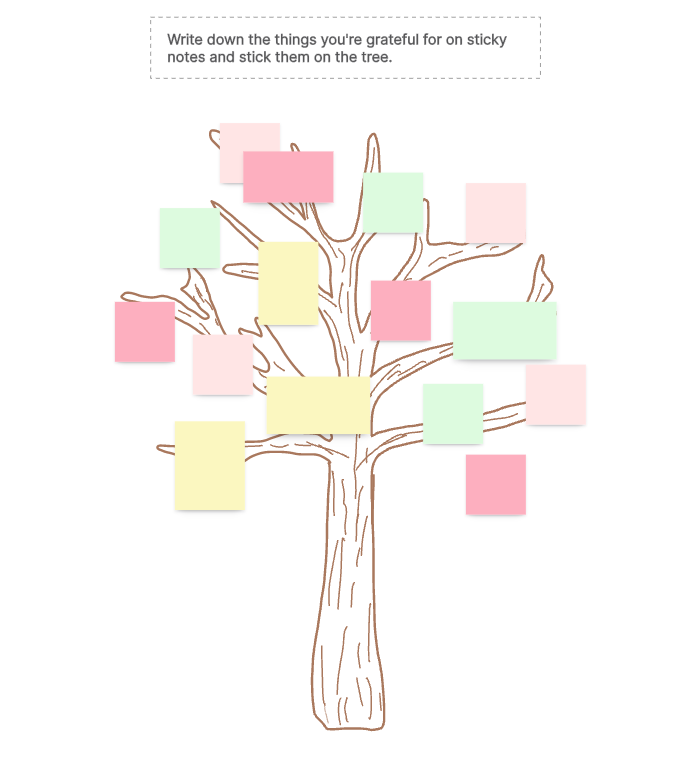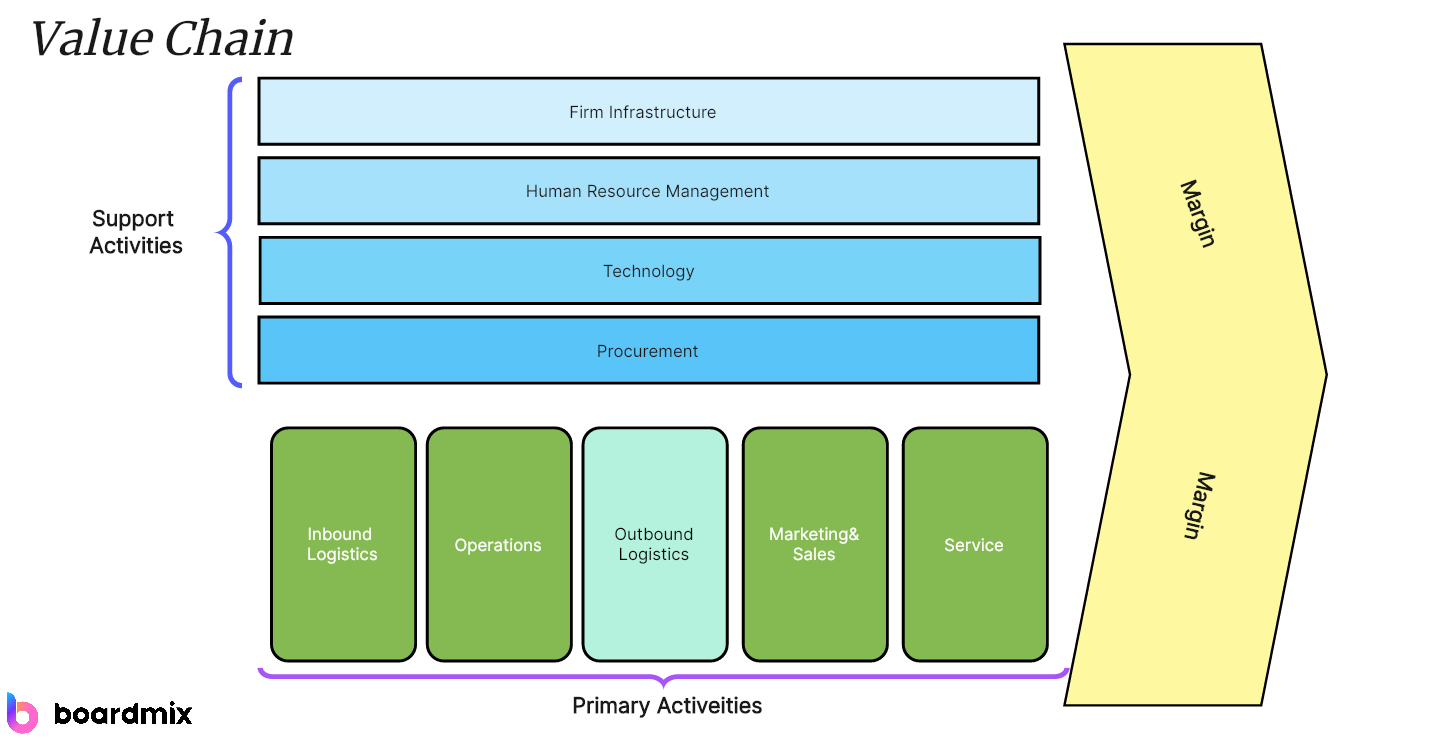Project Management Tools (PM tools) are indispensable assets in today's fast-paced business environment. They facilitate effective project tracking, coordination, and execution, thereby enhancing productivity and efficiency. By leveraging these tools, teams can seamlessly plan projects, assign tasks, monitor progress, and deliver results within stipulated timelines. So, in this article, we will look into 10 best project tracking software to help you organize your team and project better.
Top 10 Project Management Tools
1. Boardmix
Boardmix is an innovative project management tool designed to enhance team collaboration and productivity. As a leading PM tool, Boardmix offers a range of features including task assignment, progress tracking, and various drawing templates that make project visualization easy. Despite being a new entrant in the market, it has carved a niche for itself due to its intuitive interface and affordable pricing plans.
Users have praised Boardmix for its user-friendly design and powerful features that streamline project management. Whether you're managing a small team or coordinating large projects across multiple departments, Boardmix can help you stay organized and on track.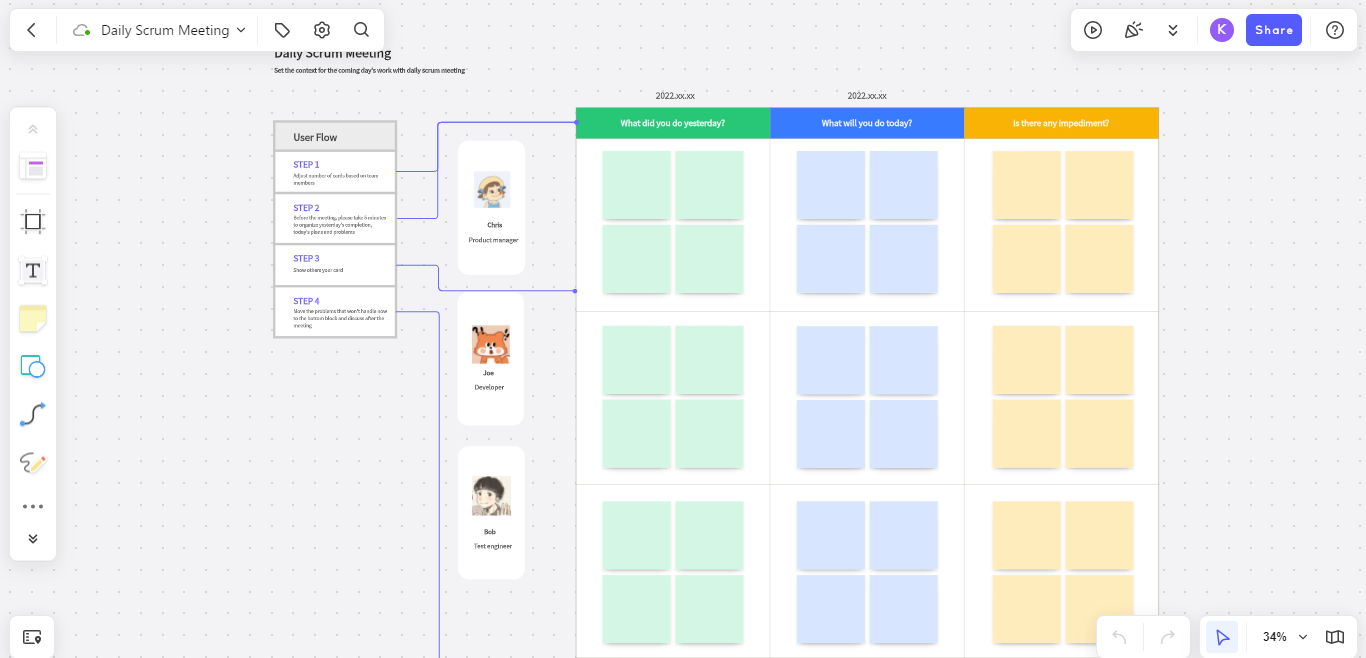
Key Features of Boardmix Project Management Tool:
Task Assignment: Boardmix allows you to assign tasks to team members clearly and efficiently. You can set deadlines, track progress, and update task status in real-time.
Progress Tracking: With Boardmix, you can easily monitor the progress of different tasks and projects. This feature helps ensure that all projects are on track and alerts you if there are any delays or issues.
Drawing Templates: One of the unique features of Boardmix is its extensive library of drawing templates. These templates make it easy for teams to visualize project plans and workflows, making the planning process more interactive and efficient.
User-Friendly Interface: Boardmix has an intuitive interface that's easy to navigate, reducing the learning curve for new users.
Affordable Pricing Plans: Despite its robust functionality, Boardmix offers cost-effective pricing plans that cater to businesses of all sizes.
Collaboration Features: Boardmix also provides features like comments and mentions which make collaboration among team members seamless.
2. Trello
Trello is also a popular project management tool known for its unique card-based system. It allows users to create tasks, assign them to team members, set deadlines, and more. Trello's interface is simple and intuitive, making it easy for teams of all sizes to manage their projects.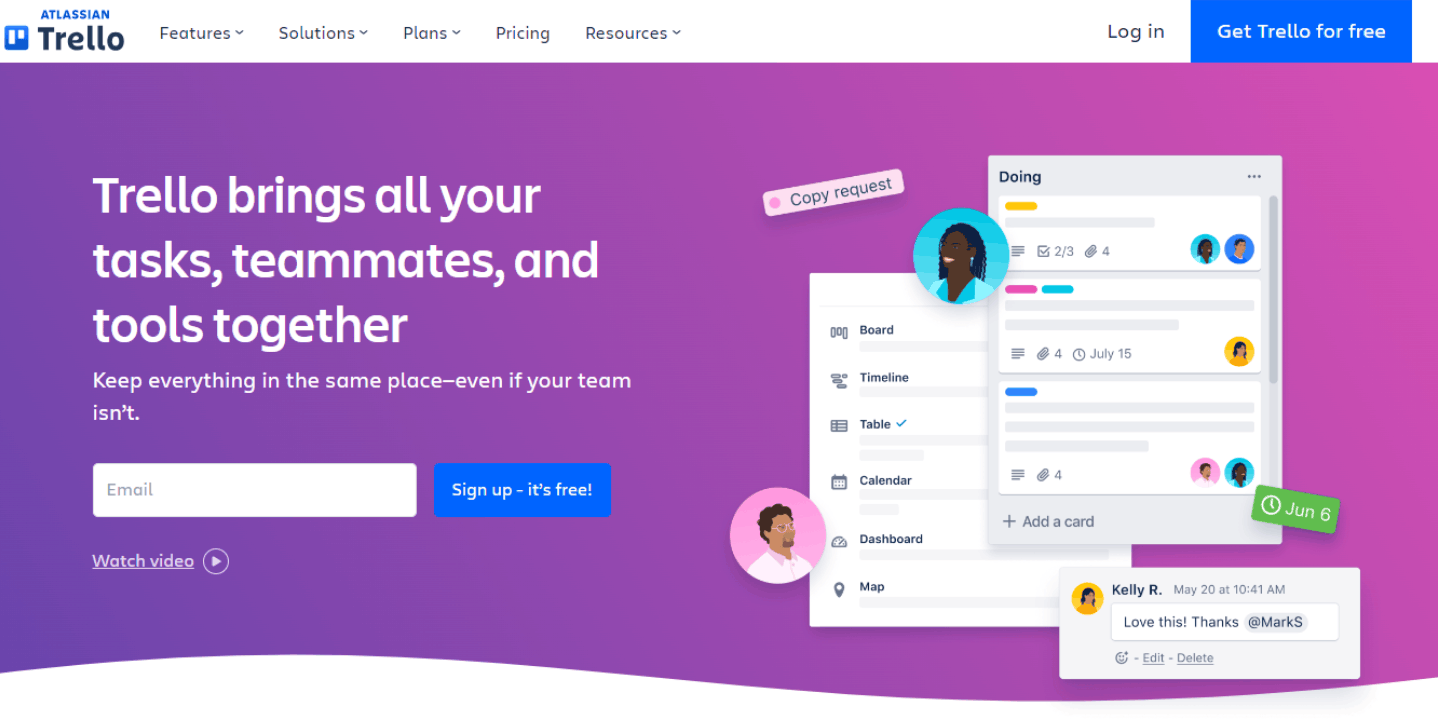
Pros:
User-Friendly: Trello's card-based system is easy to understand and use.
Flexibility: You can customize your boards, lists, and cards to fit your specific needs.
Cons:
Limited Reporting: The reporting features in Trello are quite basic compared to some other project management tools.
Overwhelming For Large Projects: While great for smaller projects, the card-based system can become overwhelming when dealing with larger projects with many tasks.
Lack of Time Tracking: Unlike some other project management tools, Trello does not have built-in time tracking features.
3. Wrike
Wrike is an all-encompassing project management app that caters to teams of all sizes. It offers real-time project tracking and advanced reporting features that provide valuable insights into project progress. With its robust functionality including time tracking, Gantt charts, and workload view, Wrike helps teams stay on top of their projects.
Pros:
Comprehensive Features: Wrike offers a wide range of features including time tracking, Gantt charts, workload view, and more.
Real-Time Updates: The tool provides real-time updates on project progress which helps in effective monitoring.
Advanced Reporting: Wrike's advanced reporting features provide valuable insights into project performance.
Cons:
Complexity: Due to its extensive feature set, Wrike can be complex and may require some time for users to fully understand how to use it effectively.
Pricing: While Wrike does offer a free version, many of its more powerful features are only available in the paid versions which can be expensive for smaller teams or businesses.
Limited Customization: Some users have reported that the customization options in Wrike are limited compared to other project management tools.
4. Zoho Projects
Zoho Projects is a comprehensive PM tool designed to streamline your project management process. It offers an array of features including task assignment, time logging, reporting and document sharing integrated into one platform.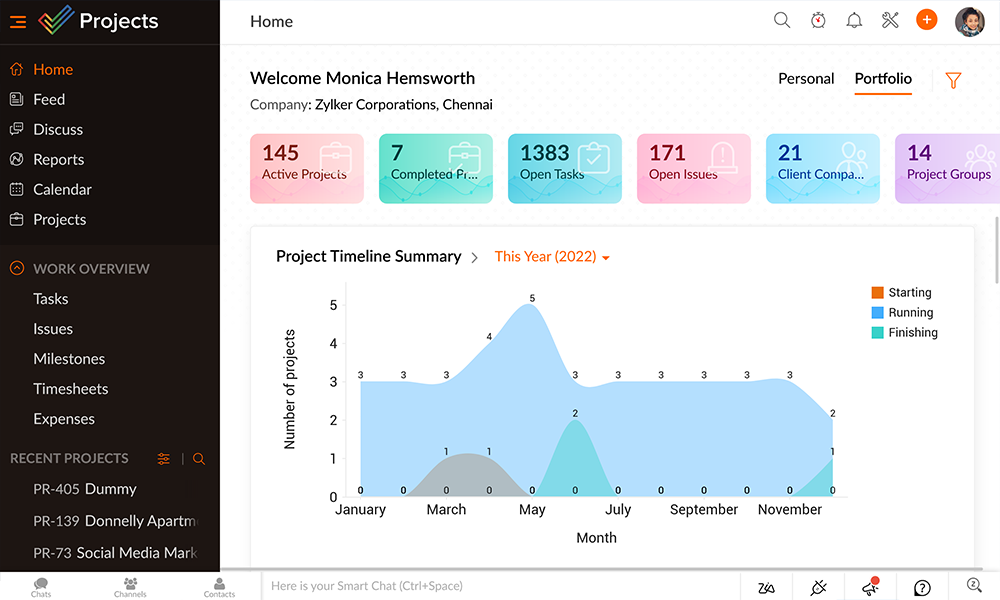
Pros:
Comprehensive Features: Zoho Projects offers a wide range of features including task management, time tracking, document management, and more.
Integration Capabilities: Zoho Projects integrates well with other Zoho apps as well as external tools like Google Drive, Microsoft Office 365 etc.
Customization: It allows for a high degree of customization in terms of workflow and report generation.
Affordable Pricing: Compared to other project management tools, Zoho Projects offers affordable pricing plans.
Cons:
User Interface: Some users find the user interface not as intuitive or user-friendly compared to other project management tools.
Learning Curve: Due to its extensive feature set, it may take some time for new users to get accustomed to using all the features effectively.
Limited Collaboration Features: While Zoho Projects does offer collaboration features like chat and forums, they are not as robust or seamless as those offered by some competitors in the market.
5. Basecamp
Basecamp is a popular PM tool known for its user-friendly interface and comprehensive feature set which includes to-do lists, message boards, schedules, documents & file storage and group chat.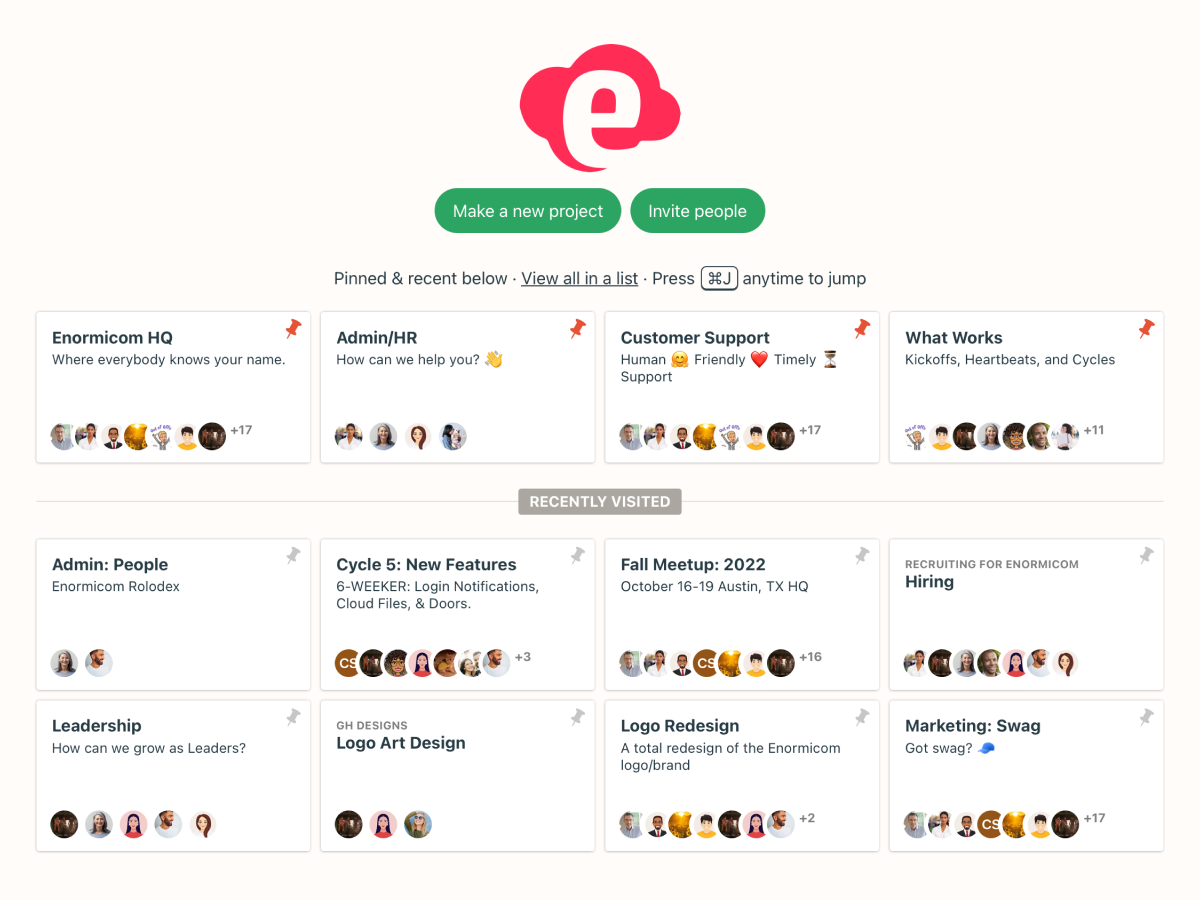
Pros:
User-Friendly: Basecamp's interface is intuitive and easy to navigate, making it accessible for users of all skill levels.
Comprehensive Features: Basecamp offers a wide range of features that cover most aspects of project management.
Excellent Communication Tools: Basecamp's message boards, group chats, and email forwarding features make team communication seamless.
Cons:
Limited Customization: Compared to some other project management tools, Basecamp offers limited customization options.
Lack of Time Tracking: There is no built-in time tracking feature in Basecamp which can be a drawback for teams that need this functionality.
No Gantt Charts: While Basecamp does offer various ways to view your projects and tasks, it doesn't provide Gantt charts which are often used for detailed project planning and progress tracking.
6. Microsoft Project
Microsoft Project is a powerful PM tool from the tech giant Microsoft Corporation. Known for its advanced scheduling capabilities that help effectively plan projects.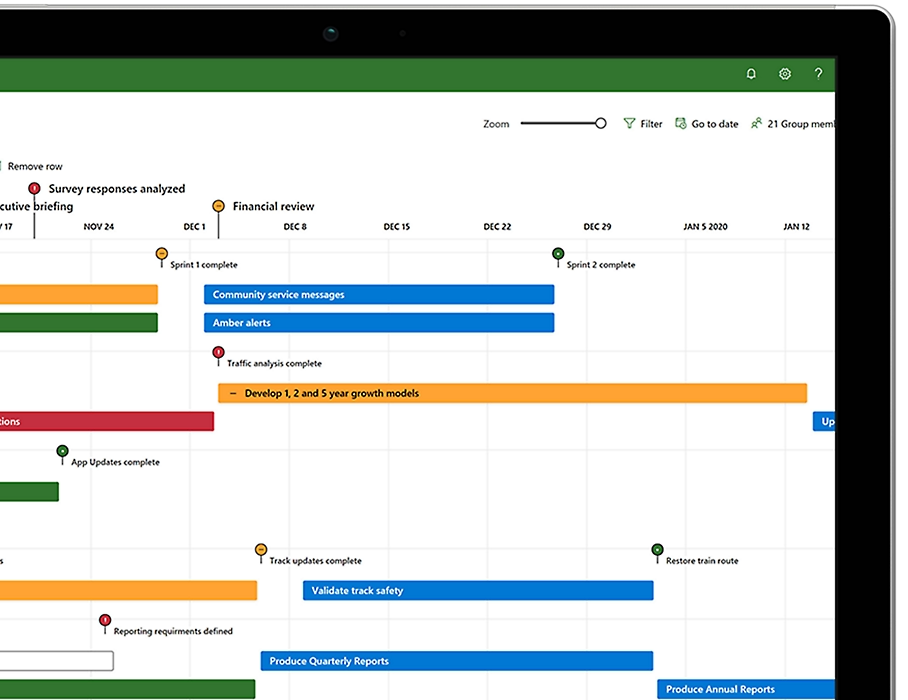
Pros:
Advanced Scheduling: Microsoft Project offers powerful scheduling features that allow you to plan projects in detail.
Comprehensive Features: It includes a wide range of features such as resource management, collaboration tools, and reporting capabilities.
Integration with Microsoft Suite: Being part of the Microsoft ecosystem, it integrates seamlessly with other Microsoft products like Office 365, Teams etc.
Cons:
Complexity: Due to its extensive functionality, there can be a steep learning curve for new users.
Cost: Compared to other project management tools, Microsoft Project can be on the expensive side especially for small businesses or teams.
Limited Collaboration Features: While it does offer some collaboration tools, they are not as robust or user-friendly as those offered by some competitors in the market.
Requires Software Installation: Unlike many modern project management tools which are cloud-based, Microsoft Project requires software installation which might not suit all types of businesses.
7. ClickUp
ClickUp is a cloud-based solution suitable for project tracking of all types and sizes. It provides user-friendly navigation and a variety of features such as process management, task assignment etc.
Pros:
Comprehensive Features: ClickUp offers a wide range of features including task management, time tracking, goal setting, and more.
Customization: ClickUp allows for high customization in terms of workflow setup, views, and reporting.
User-Friendly Interface: The tool has an intuitive interface that's easy to navigate.
Integration Capabilities: ClickUp integrates well with many other tools like Google Drive, Slack etc.
Cons:
Learning Curve: While ClickUp is user-friendly, its extensive feature set can be overwhelming for new users leading to a steep learning curve.
Performance Issues: Some users have reported occasional slow loading times and glitches in the software.
Complex Pricing Structure: While ClickUp does offer a free version, the pricing structure for its paid plans can be complex to understand with certain features only available at higher cost tiers.
Limited Offline Functionality: Unlike some other project management tools, ClickUp has limited functionality when used offline.
8. Jira
Jira, developed by Atlassian, is a powerful project management tool primarily used for issue tracking and project management in software development. However, it can be customized to fit other types of project management needs.
Pros:
Powerful Tracking: Jira excels at issue tracking and provides detailed information about issues including their status, who's working on them, and their history.
Customizable Workflows: Jira allows teams to create custom workflows that match their specific processes.
Scalability: It's suitable for both small teams and large enterprises due to its robust functionality.
Cons:
Complexity: Due to its extensive features and customization options, there can be a steep learning curve for new users.
Cost: While there is a free version available, the more advanced features are only available in the paid versions which can be expensive for smaller teams.
User Interface: Some users find the interface not as intuitive or user-friendly compared to other project management tools.
Overkill for Small Projects: The robustness of Jira could be an overkill for very small projects or teams, making it less cost-effective in such scenarios.
9. Smartsheet
Smartsheet stands out in project management tools with its spreadsheet-like interface combined with PM functionalities like Gantt charts & automated workflows making it ideal for businesses used to working in an excel-like environment.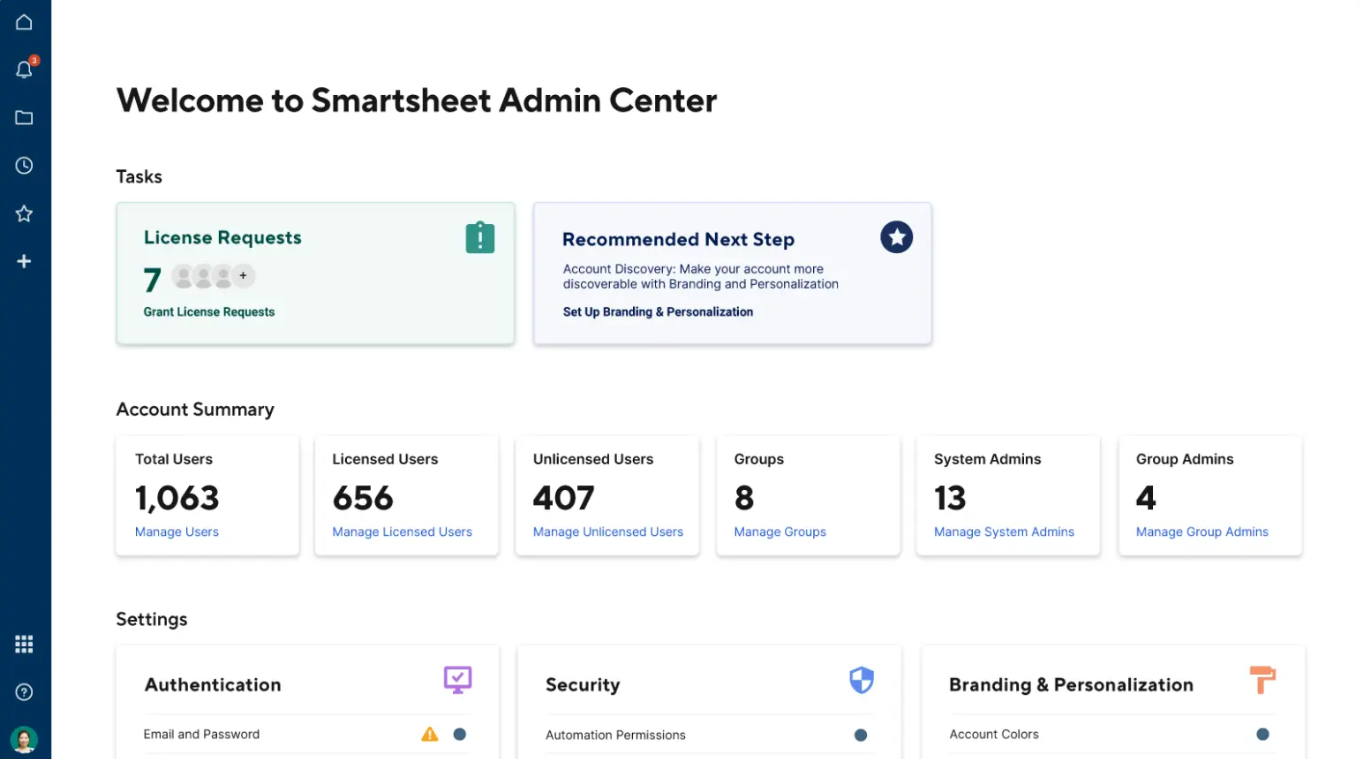
Pros:
Familiar Interface: Smartsheet's spreadsheet-like interface is familiar to most users, reducing the learning curve.
Comprehensive Features: Smartsheet offers a wide range of features including task management, Gantt charts, reporting, and more.
Cons:
Pricing: While there is a free trial available, the paid versions can be expensive for smaller teams or businesses.
Limited Customization: Compared to some other project management tools, Smartsheet offers limited customization options.
Complexity: Despite its familiar interface, the extensive feature set can be overwhelming for new users leading to a steep learning curve.
No Built-in Chat Feature: Unlike some other project management tools, Smartsheet does not have a built-in chat feature which can limit real-time collaboration among team members.
10. ProofHub
ProofHub rounds off our list of top PM tools but is by no means the least effective. It offers comprehensive project management solutions that cater to businesses of all sizes. With features like task assignment, time tracking and document sharing integrated into one platform, it simplifies project management significantly.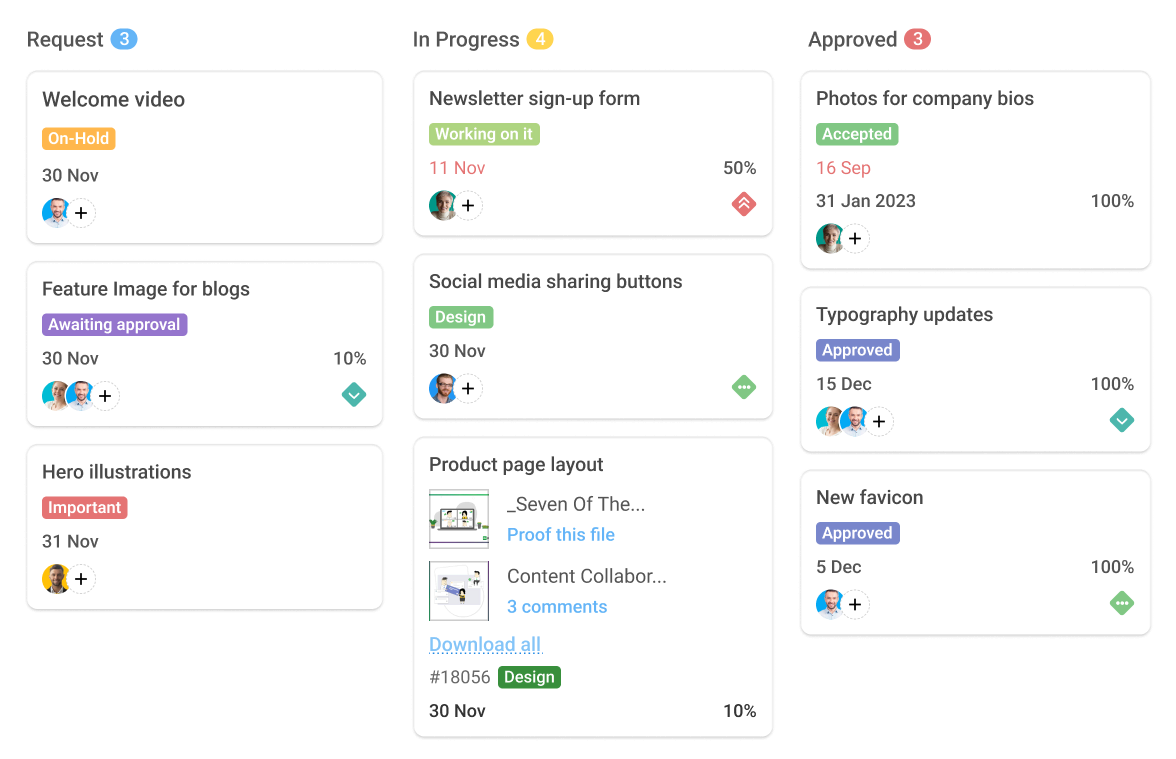
Pros:
Comprehensive Features: ProofHub offers a wide range of features including task management, Gantt charts, time tracking, and more.
User-Friendly Interface: The tool has an intuitive interface that's easy to navigate.
Flat Pricing Structure: Unlike many other tools that charge per user, ProofHub charges a flat monthly fee regardless of the number of users.
Multilingual Interface: ProofHub supports multiple languages which can be beneficial for international teams.
Cons:
Limited Integration Capabilities: While ProofHub does integrate with some external tools like Google Drive and OneDrive, its integration capabilities are not as extensive as some other project management tools.
No Free Version: Unlike many other project management tools, ProofHub does not offer a free version.
Limited Customization Options: Some users have reported that the customization options in ProofHub are limited compared to other project management tools.
Learning Curve: Despite its user-friendly interface, it may take some time for new users to get accustomed to using all the features effectively.
What to Look for in a Project Management Tool?
Choosing the right PM tool can be a daunting task given the plethora of options available today. However, certain key factors can guide this decision-making process:
- Ease of use: The tool should have an intuitive interface that requires minimal training.
- Customization options: The ability to tailor workflows according to specific needs is crucial.
- Integration capabilities: The tool should seamlessly integrate with other software you use regularly such as email or cloud storage services.
- Pricing: Consideration must also be given to budget constraints while choosing a PM tool
Conclusion
In conclusion, selecting the right project management tool can significantly enhance team productivity and streamline workflows. While all the aforementioned tools offer unique benefits tailored to different needs, Boardmix stands out with its user-friendly interface and powerful features designed specifically for efficient project tracking. Don't hesitate to give it a try.











